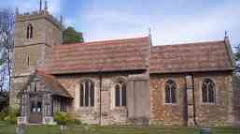This is always a most beautiful time of the year in Middle Tennessee, and I had the pleasure this afternoon to drive through the fields, woodlands, and hillsides to make plans for a Blessing of Animals to celebrate the Feast of St Francis. As I drove I thought and prayed, although I seemed to constantly find myself behind every less-than-perfect driver on the road, which didn't improve my driving.
A whole tangle of ideas, bits, and pieces that I had been reading tumbled around in my brain, and it surprises me that anything constructive has emerged -- but it has. I guess the trigger was what is for me the sad departure of most of the people of St. John's, Tallahassee from the Diocese of Florida. I never cease to find such events painful, marveling over how stupid supposedly intelligent bishops can be. When it hit the press in the last few days it plunged me for a time into deep depression.
Yet as I thought about it I remembered that period in the 1990s when I was involved in the shaping of ideas that might shape the denomination, and especially being part of a taskforce that was formed to re-envision the mission ministry of the Episcopal Church. Because of the way the resolution of the 1994 General Convention was phrased we were able to do some real big-picture dreaming before we were pressed to focus in on our specific task.
The truth is, we opined, as you look at the way the world is developing, flattened overlapping networks are the way of doing things and not the hierarchical structures that we live with right now. A lot of imaginative thinking and writing about networks was being done at that moment, because it was clear that the whole way in which the emerging world was doing its business could not longer cope with the pyramidic organizations of yesteryear.
One of the more radical (in every way) individuals who did some work with the taskforce, when we had got our first draft together said something to the effect that "if they don't accept networks voluntarily, then they will have networks thrust upon them." These weren't his precise words, but they were the mood of what he said. Well, it does seem that the Episcopal Church has been totally unwilling to accept that the time has come to alter the way we do business, and so networks are little by little peeling the old structures away.
Eric Dudley and the fellowship in Tallahassee that has followed him out of the structures of ECUSA has sought the networked covering of an unnamed archbishop somewhere else in the Anglican Communion. You probably don't need to be a rocket scientist to guess what continent that archbishop might reside upon! Another brick is taken out of the ECUSA building, and then is affiliated with a new way of doing things, a way made possible by the information revolution.
The management guru, Robert Quinn writes that "an organization is a coalition of coalitions... the entire system is constantly evolving and changing" (Deep Change, Robert Quinn, page 91). In the past that change has come incrementally, so there have been ways of managing that evolution so that it is minimal in its disruption, but we live in a wholly different world. Quinn then goes on to suggest that "The operative goals (of these coalitions of coalitions) are usually congruent with the interests of the dominant coalition" (page 91). He further suggests that virtually every dominant coalition justifies the current equilibrium which gives it power, and limits changes to minimal incrementality rather than transformational efforts.
Going back to that taskforce, then Presiding Bishop Browning when he discovered the groundwork we were doing just about blew a gasket. I had not arrived at the meeting where he did this because of a flight delay, which may have saved my hide from a nasty tanning. Browning, and those who have followed him, have not been willing to let go of the reins that give them power in order that transformation that will release the Gospel can take place.
Meanwhile, the networks keep on networking, and these days among the orthodox, there is an interesting melange of ECUSA types, Reformed Episcopalians, AMiAs, those affiliated with dioceses and provinces elsewhere, and so forth. There might be certain distrusts, but we share seminaries, in some cases share clergy, share mission agencies, and are gradually finding ways of doing work with one another.
While I don't want to suggest that attitudes in these emerging networks are always good, honest, true and lovely, what is happening is that the waters of spiritual life are finding other ways of doing things. If the received structures refuse to budge, then we must get on with Gospel ministry in another way. I suspect that in some form or another, this is one of the seeds of what will be future settings within which faithful ministry and mission takes place.
Those who entrench in the old structures are behaving like King Canute. Tomorrow's church will thrive where it learns how to communicate in a holy manner yesterday's theology that is rooted and grounded in God's revelation, not where it adjusts its theology to the mood of the age. But it will also thrive where it is prepared to adapt to meet a different kind of world. Doesn't the Lambeth-Chicago Quadrilateral talk about "the historic episcopate locally adapted?"
Brothers and sisters in Christ, now is the time to adapt, whenever we are in the messy network of emerging Anglicanism. As the man said, "if they don't accept networks voluntarily, then they will have networks thrust upon them."
Thursday, October 06, 2005
Subscribe to:
Post Comments (Atom)





1 comment:
Love. It can change the world. Pass it on.
drink and snack
Post a Comment